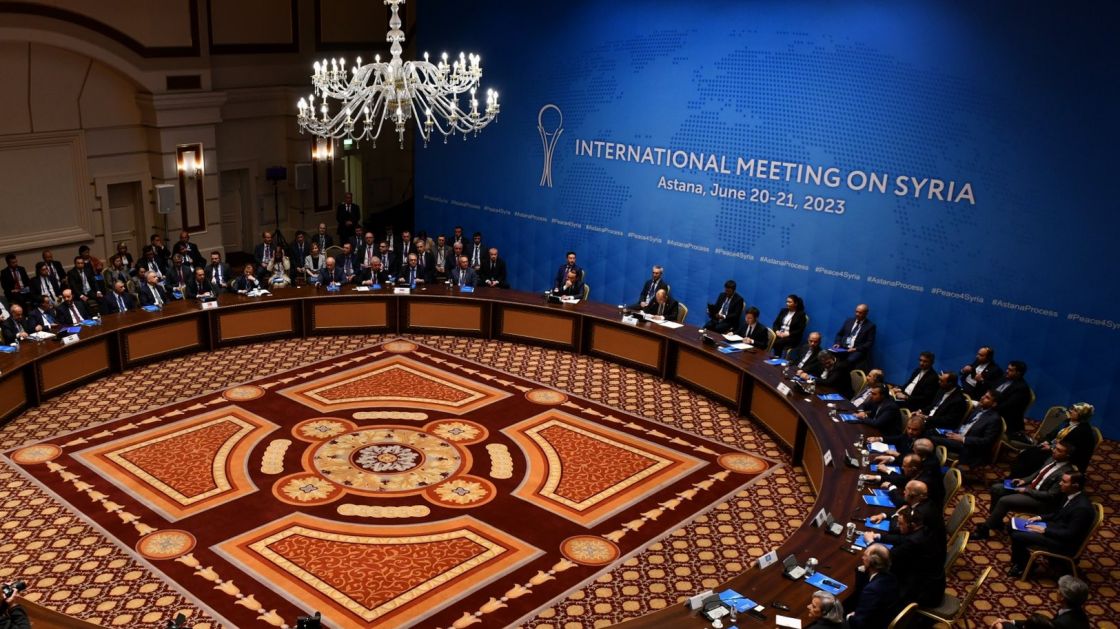- Editorials
- Posted
Kassioun Editorial 1192: Can 2254 Be Implemented Without the West?
Before looking at what must be done to get Syria out of its crisis, restore its unity and the unity of its people, and restore its sovereignty, we must look at what is actually being done on the ground and in politics.
Looking at the series of “changes” led by extremists from the different sides, along with the West, that have taken place in Syria over the past two years, confirms that these “changes” are precisely in line with the American “step-for-step” project. Said project includes transforming temporary asylum outside Syria into a permanent one that reduces the absolute population of Syria and reduces its regional weight in line with the old-new project, the “New Middle East” project as formulated by Shimon Peres. The latter project includes deepening the savage liberalism in Syria toward more privatization – albeit under various names and masks, eliminating social support, and activating various legal and institutional changes in line with the subsequent situation required for Syria by Western sides. All this aims to uproot Syria from its historical functional role, and implicitly through pushing to transform the army institution into a “professional” institution, in the Lebanese style, for example, and in a way that distances it from its historical function.
The progress of the Western plan in Syria does not necessarily mean that it will reach its goals, which will not stop at prolonging and deepening the crisis, but rather seek to divide Syria permanently and legitimize that division, in parallel with transferring it – or rather transferring its parts – from one bank to another on the international and regional levels.
The step that has become necessary from the West’s point of view in completing this plan is the final destruction of UNSC Resolution 2254 and the idea of a political solution altogether and replacing it with a series of gradual partial deals, the clear signs of which have begun to surface with the European non-paper formulated by eight EU countries, which are ultimately working under American command.
On the other side, the Astana track, along with China and key Arab countries, has become the primary stakeholder and the primary party responsible for implementing UNSC Resolution 2254. This would be necessarily without the West’s approval or participation, because the West’s intentions have become clear and almost announced. A logical question here arises: Can these countries, primarily Astana, embrace the implementation of the Resolution without the West’s participation?
The answer is: Yes! Not only that, but this is the only path that Astana, China, and all the countries in the region seeking to escape the comprehensive destructive American chaos can follow. Perhaps the continued stumbling block in the Syrian-Turkish settlement, which is ultimately led by Washington, along with the extremists on all sides, is the best example of the impossibility of restoring Syria’s unity and moving it towards real stability, as long as there is any reliance of any kind on any sort of compromise with the West.
UNSC Resolution 2254 is ultimately an internationally-legitimate resolution, and its implementation is a legal responsibility for all member states, collectively and individually. The failure of the countries with an interest in Syria’s stability – primarily the Astana countries – to take the initiative in implementing it does not mean stagnation, but rather it means precisely taking additional steps within the Western project in Syria and in our region, towards comprehensive fragmentation and comprehensive chaos.
The true reflection of the new international balance of power will not happen automatically and without self-efforts, and it requires taking the initiative quickly, at the level of the countries with an interest in Syria’s stability, and at the level of patriotic Syrian, regardless of their current alignments.


